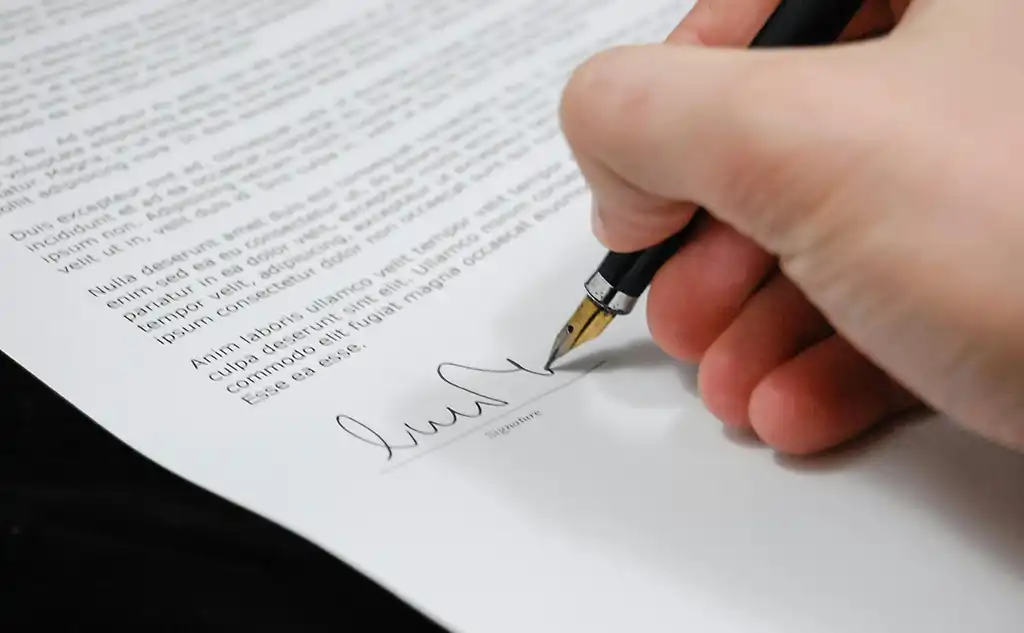Anti-Money Laundering Rules for Landlords and letting agents will be enforced From 14 May 2025.
This means checking tenants and landlords to make sure they are not involved in crime, fraud, or financial wrongdoing.
Right now, these checks only apply to very expensive rentals (over €10,000 a month), but soon every landlord and every letting agent must follow the AML compliance to the UK rental market rules. If you rent out a property, you’ll have to verify identities, check government watchlists, and keep proper records.
If you don’t follow the rules, you could face big fines or even prison time.
What is the AML Rules for Landlords and Why Does it Matter?
AML stands for Anti-Money Laundering. It’s a set of laws designed to stop criminals from using rental properties to hide illegal money and add AML compliance to the UK rental market. Money laundering happens when criminals use rent payments, deposits, or property deals to hide stolen or illegal money. The government has noticed that criminals sometimes rent properties to move illegal money, avoid taxes, or fund crimes.
How the Rules Are Changing
Before May 2025 After May 2025
| Before May 2025 | After May 2025 |
|---|---|
| Only high-rent properties (£8,300+ per month) needed AML checks. | Every rental, no matter the price, needs checks. |
| Only Anti-Money laundering rules for letting agents. | Both letting agents and private landlords must check tenants and landlords. |
| No legal requirement to check the UK sanctions list. | All landlords and agents must check if tenants are on the UK sanctions list. |
| Limited reporting requirements. | Agents and landlords must report suspicious activities to the government. |
| Few penalties for non-compliance. | Failure to comply can lead to huge fines or even prison (up to 7 years). |
Check Tenant and Landlord Identities
One of the biggest changes in the new Anti-Money Laundering rules for letting agents and landlords is to verify the identities of both tenants and landlords before a tenancy agreement is signed to ensure the new letting agent regulations 2025 are enforced. This ensures that everyone involved is who they say they are, reducing the risk of fraud, illegal activities, and financial crime.
Why Is This Important?
Criminals sometimes use fake identities or stolen documents to rent properties for illegal purposes, such as:
- Hiding illicit money through rent payments.
- Setting up fraudulent businesses at rented addresses.
- Using property for criminal activity, like drug operations or illegal subletting.
To prevent this, landlords and agents must confirm the real identity of tenants and property owners before signing a contract.
Tenant Identity Checks
Before renting out a property, landlords and agents must verify the identity of every adult tenant who will be living there.
What to collect from tenants:
- One official photo ID (passport or driving licence).
- Proof of address (a recent utility bill, bank statement, or council tax bill, dated within the last 3 months).
- Extra steps for additional safety:
- Check the ID in person to confirm it matches the tenant.
- Compare signatures on different documents.
- Look for signs of tampering (e.g., blurry edges, misaligned text on documents).
- Use online verification tools (like SmartSearch or Onfido) to scan and authenticate documents.
Red flags to watch out for:
- Tenant refuses to provide ID or gives excuses.
- Documents look fake, edited, or have inconsistent details.
- Address on ID doesn’t match other documents.
- Tenant insists on paying in large amounts of cash.
If anything seems suspicious, do not proceed with the rental until you have verified the documents properly.
Landlord Identity Checks
If you are a letting agent (like RA Flatt Residential Lettings) managing a property on behalf of a landlord, you must also verify the landlord’s identity before taking them on as a client. This prevents fraudsters from posing as landlords to illegally rent out properties they don’t own ensures AML compliance to the UK rental market.
What to collect to comply to AML rules for landlords:
- One official photo ID (passport or driving licence – essential for AML compliance to the UK rental market).
- Proof of property ownership (Land Registry records, mortgage statement, or recent utility bill in their name).
- Extra verification steps:
- Cross-check the landlord’s name with the Land Registry to confirm ownership.
- Check if the property has outstanding legal issues (e.g., repossession warnings).
- Ask for proof of their bank account (to ensure rent payments go to the correct person).
Red flags to watch out for:
- Landlord refuses to provide ownership proof ( a red flag for Anti-Money Laundering Rules for Landlords)
- Documents show a different name than the one given.
- They ask rent to be paid to a third party or offshore account.
If any details don’t match up, investigate further before proceeding with a tenancy.

Keeping Records (For 5+ Years)
Under the new AML rules for landlords and letting agents must store copies of all identity documents and verification checks for at least five years. This ensures compliance with regulations and provides a clear record of due diligence in case of an audit. Proper record-keeping protects landlords and agents from legal risks and helps demonstrate that all necessary checks were completed correctly.
To keep records secure, digital storage with encryption—such as Google Drive, Dropbox, or property management software—is recommended. Access should be restricted to authorised personnel only to prevent data breaches. For physical documents, secure storage is essential, and paper copies should be shredded after the five-year period to comply with data protection laws. By maintaining well-organised and protected records, landlords and agents can safeguard themselves against penalties and legal issues while ensuring a smooth compliance process.
Report Suspicious Activity
If you think a tenant, landlord, or payment might be linked to crime, you must report it.
Examples of suspicious activity:
- The tenant wants to pay rent in large amounts of cash (a red flag for the AML rules for landlords).
- The landlord has no proof of property ownership.
- The tenant’s name appears on the sanctions list.
Who to report to?
- For sanctions matches → Report to the Office of Financial Sanctions Implementation (OFSI).
- For suspected money laundering → Report to the National Crime Agency (NCA).
What Happens if You Don’t Follow the Rules?
Failing to comply with the new Anti-Money Laundering Rules for Landlords and Letting Agents can lead to serious legal and financial consequences for both landlords and letting agents. The UK government is tightening regulations to prevent financial crime in the property market, and authorities are actively enforcing compliance. Ignoring or skipping required checks can result in substantial fines, business restrictions, or even criminal charges.
Huge Fines – Authorities can impose thousands of pounds in fines per violation for breaches of AML rules for landlords, with larger businesses facing penalties that can run into the hundreds of thousands. If an agent or landlord fails to verify identities, perform sanctions checks, or report suspicious activity, they could be fined heavily by HMRC or the Office of Financial Sanctions Implementation (OFSI). Recent AML enforcement cases in the property sector have seen businesses penalised for failing to conduct due diligence properly.
Legal Action & Business Restrictions – Letting agents who repeatedly fail to comply could have their business licenses revoked or be banned from operating. Non-compliant agencies may also be removed from professional bodies like Propertymark or The National Association of Estate Agents (NAEA), which could severely damage their reputation and ability to attract clients. Private landlords who fail to comply may face civil penalties or restrictions that could prevent them from renting out properties in the future.
Prison Sentences – In the most serious cases, criminal prosecution can result in up to 7 years in prison. This applies to cases where a landlord or agent knowingly facilitates money laundering, fails to report a sanctioned individual, or deliberately ignores compliance obligations. Courts take AML rules for landlords very seriously, especially if they are linked to organised crime, fraud, or terrorist financing.
Authorities are actively investigating and penalising those who fail to follow these regulations, so landlords and agents must take compliance seriously. If you’re unsure about any part of the process, it’s better to seek legal advice or professional guidance rather than risk fines or legal consequences. Staying compliant isn’t just about following the law—it’s about protecting your business and reputation from costly mistakes.
Checklist for Landlords & Agents
- Collect ID documents from all tenants and landlords.
- Check the UK Sanctions List before renting a property.
- Report suspicious transactions to the authorities.
- Keep all records for at least 5 years.
- Stay updated on any new Anti-Money Laundering rules for letting agents or requirements for landlords.
Final Thoughts: Get Ready Now!
The new anti-money laundering law for landlords start in May 2025, so landlords and letting agents should prepare now. By following these steps, you’ll:
- Stay on the right side of the law.
- Avoid penalties or legal trouble.
- Make sure your properties are not being used for crime.
The best way to prepare? Start checking tenants and landlords now so you’re ready when the law changes!


